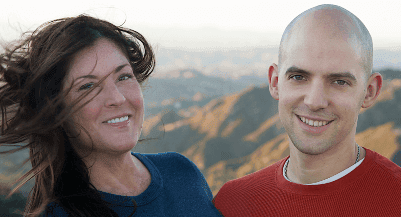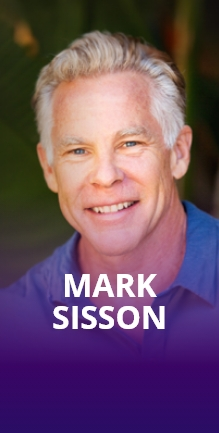I have the pleasure of joining me today Joy Coelho and Jay Denman. Joy, did I pronounce your name correctly?
Yes, you did.
These two geniuses are culinary experts at jing and herbalism and superfoods, and basically how to have an optimized biology to have an optimum life. And that includes what you put into your body and how you take care of it, such as sleep and optimizing your libido and optimizing your focus and clarity and energy. They are true experts and have worked with amazing people that you have probably heard of such as Dave Asprey, biohacking guru, the founder of BulletProof Exec, creator of BulletProof Coffee, and his new best-selling book The BulletProof Diet. He’s a client. Steven Tyler of Aerosmith is a client. They are members of the International Association of Culinary Professionals. I’ve had the privilege of tasting some of their mind-blowing and tastebud blowing cuisines. They had hosted their food portion of The BulletProof Diet book launch party. You have an interesting background, which I would love to touch on too. Joy, you started in the police force and then shifted 180 degrees to focus on jing and Chinese herbs and all that. What an incredible shift! Jay, what is your background in?
Hi Stephan. My background was working in several tonic and elixir bars, setting those up, doing the menu design, and really primarily working with the general public on a day-to-day basis. So working with dozens and dozens of people, if not hundreds of people doing events, and working to make customized elixirs, and smoothies, and at some times SuperFood ice creams. Really taking the best of the drinks world and the herbal world and mixing them with things together into something people really love and boost their minds and feel great from.
You guys will go and cater a party such as a book launch party, you guys will meet the chefs to Steven Tyler, or other celebs. And you also market “How to hack your sleep, how to boost your mental clarity, energy, hormone levels,” everything else in between. If someone needs help adjusting hormone levels, want to become pregnant, if they are going through menopause, you have solutions. I’m excited to dig in and learn all of the tips and tricks and secret weapons in your arsenal.
We show people how to build their toolbox and what to put in their toolbox specifically for where they are trying to go.
And that is what we do. We show people how to build their toolbox, and what to put in their toolbox specifically for where they are trying to go. So, you mentioned sleep, you mentioned libido, you’ve mentioned energy and mental focus. And quite honestly, when you reboot, you reset, and you do it in a very organic and mindful way. The truth is when you do one of those things, a lot of those other things will kind of fall into place, and the benefit of that instead of a side effect is a side benefit. Working on your sleep and then your energy level raises— you may not have specifically been working on your energy level, but it is one of those side benefits instead of effects. And how do we do that? And what do we do that is different? Those are a little more specific than the question you asked. We take the things that people love, because with a culinary background — I know you mentioned I was a police officer, and I was a police officer for over 20 years, a K-9 handler with special ops and that sort of thing — so I take everything we do very seriously. Integrity is everything. If we talk about an herb or a protocol, we haven’t researched and just cherry-picked the information to sort of support our point of view, we really look at all the information across the board on that item, that modality, that herb, that superfood, and let people know the broad spectrum of what it can offer them. I think that is really important, I think it differentiates us a bit as well. But I think what really sets us apart is that we take the comfort food that you love, we call it creatively conscious or creatively clever comfort food, and you have the same mouthfeel, same taste, and same flavors that you are looking for, and we elevate it with those superfoods. Which, you know what the flavor profiles are, and the medicinal benefits of these herbs and superfoods, which are really only a mouse click away for everybody. Sometimes you have some right now, unsuspecting superfoods in your own kitchen or pantry without knowing it. And we teach you how to sling ’em. It doesn’t matter if it is ice cream or whatever. You tell us where you want to go, and we will show you how to get there.
And the other thing that differentiates us is that we like to say that everyone is welcome at our table. Because no matter what your dietary type or preference is, maybe it’s vegan, maybe somebody is paleo, maybe somebody is omnivore, and anything in between, we like to take the type of recipe they are doing and show how they can modify it for what suits their particular diet. I know that recently, I think this is becoming more and more prevalent, you’re being invited to so-and-so’s house for dinner for a dinner party or a party or even Thanksgiving with your family, and there is a vegan at the table or there is someone who is just vegetarian, there is somebody who is paleo. We show you how to take that meal, and everyone gets to sit down and eat the same food, there might be a little bit of a difference because the ingredients might be switched up. But you’re not throwing a bowl of salad to someone who is vegan at a very rich decadent holiday dinner. They are getting that same dinner, those same mouthfeels. And that is how we show them how to be able to bring that to fruition so you have really happy people around your table. And that is why we have so much excitement and so much media attention.
The thing about superfoods and why it is so important for us to coordinate them into our diet is that if we don’t have the right levels of nutrition and the vitamins, the minerals, the so forth, we are going to operate at a sub-optimal level, probably get sick more often. It’s not just about getting that vitamin C so you don’t get a cold. What about Vitamin D? What about Omega3s? If you’re low on some of these essential components that go into your immune system, you’re still going to get sick during the winter instead of staving every food bug that comes your way. And that is not just about staying well and not feeling lousy, it is about extending your lifespan. Adding some years to your life and life to your years. So, tell us more about these superfoods and what some of the various superfoods that you highly recommend can do for our listeners.
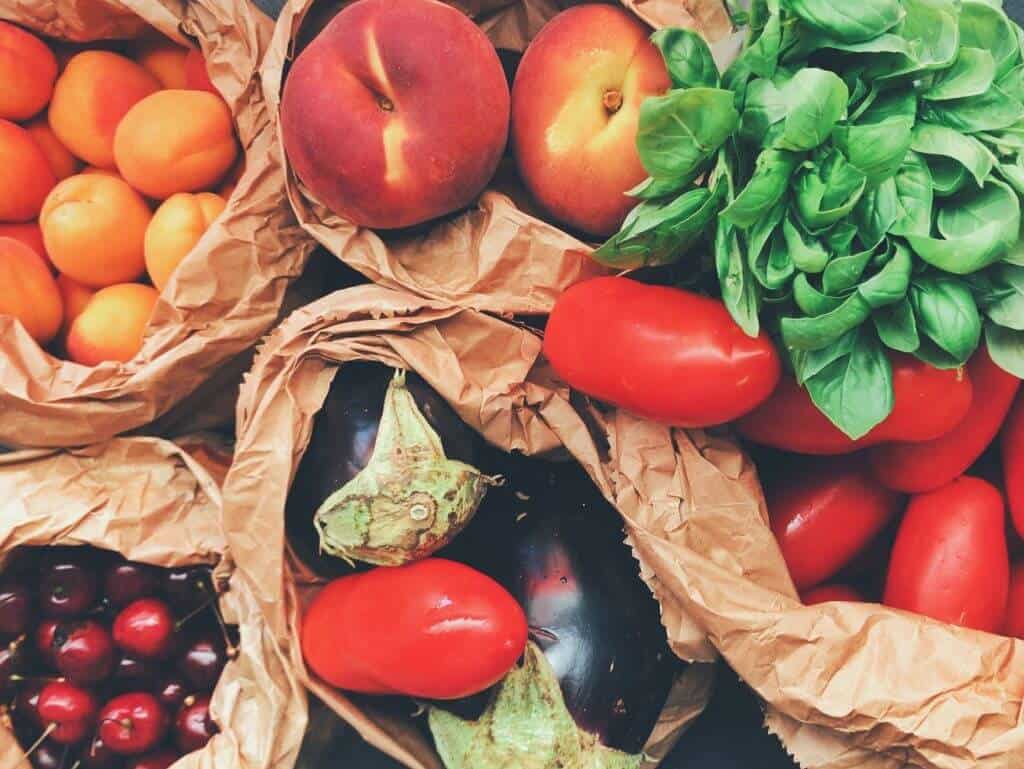
I think the easiest way to do this is in smoothies. You can have a $20 Oyster blender or a Vitamix or Blendtec. It doesn’t matter what you use, as long as you get them in there, pre-digest the food that you are blending, thus it is more bioavailable. But you want to be blending foods that don’t have the pesticides or residual toxins associated with conventional foods. That is why we always recommend organic, and you get people who roll their eyes and say “It’s expensive,” but not in the long run, it truly isn’t, when you get some tips on how to do that on budgets that may not have as much stretch as others. The difference between a superfood and what is called a superfood, because that word gets thrown around like a volleyball at a concert sometimes, where it is good for you but it is not quite a superfood. And I’ll tell you the difference.
Let’s use acai as an example. It is pretty widely available; you can go into supermarkets and get little frozen packets of acai. It is a small berry from the Amazon. It has a super high antioxidant level, but there are a lot of other components too. It is not just the different nutritional elements that everyday plants offer. They provide a dramatically higher concentration of those elements. For example, a tablespoon of frozen acai has the resveratrol elements of 36 glasses of organic red wine. Rather than drink 36 glasses of organic red wine, although that can be a weekend, you’ve got one tablespoon that you are putting into your smoothie, and you get the benefit from that immediately. Then you can do the synergy of a few superfoods. You layer a few, some of them you recognize, like blueberry. Again, always organic. And you’ve got something that you didn’t have just a little bit ago. Most Americans – I don’t remember the name of the study, but I can certainly post it up on the website or email it — most Americans eat 25-30 individual foods prepared different ways, and that is pretty much it in your diet. When you branch out and get these different superfoods and herbs, suddenly you’ve gone from 50-60 to a 100. We’ve tracked what we do, and it’s between 100 and 200 different elements that we get into our foods, it is part of what our biology requires, our primal nature. Boy, you’re flipping switches like crazy. We won’t go into epigenetics right at this moment, but honestly, that is the game-changer.
Most Americans eat 25-30 individual foods prepared different ways, and that is pretty much it in your diet.
And then also when you are looking at “What is a superfood?”, when you look across the globe and you look at the different cultures that’ll always have a handful of both food and herbs, sometimes they are the same thing or that work in similar ways, that are just really at the top. Acai, as we mentioned, or also in South America, Maca. I think most people are familiar with Maca now, it has seen a huge growth in use in the US in the past 10 years.
Speaking of libido, yeah, it’s a root, a Maca root, kind of like a radish. It has the precursors to testosterone and progesterone. It is libido-enhancing, is great for the entire endocrine system, especially the kidneys and adrenals. You see these foods and herbs in China; goji berries are very popular here now. In China, goji berries are one of the very top Chinese herbs in the entire system. They are another great hormonal food. Oftentimes you see these foods that impact longevity and they have an effect on a hormonal system because it is so key for having a longer and vital lifespan. Goji berries have been known to directly affect the pituitary gland. And it is a great longevity food, great for eating like a handful a day, or as a tea. There are many different ways of eating these things. And goji is one of those things, even kids love the flavor of them. If you are doing a smoothie with goji berries and acai and blueberries with some ice cubes or some coconut milk, you’ve got a great little blueberry ice cream or gelato. Going back to the goji thing, it helps you go through that stressful day and fill in the gap when you’re either too high or too low in emotional waves, truly.
And the other thing that really makes an impact that Joy started talking about is how the food is grown. No matter what you’re eating, you always want to get the highest quality possible. Take corn for example. Corn, for most of its existence, was a superfood and a main dietary staple of the Native Americans on this continent. Today it has been so hybridized and genetically modified, and there are so many pesticides on it, it is not a shadow of what it used to be. That translates to the actual minerals that you are getting, mineral density, but also if you are buying things that have pesticides, a lot of those pesticides are called xenoestrogens, they actually plug into the estrogen receptors, hormonal receptors in the body. Their affinity is actually many many times higher than our own hormones, so they really can disrupt hormonal balance and some serious issues. Even just on the everyday food that people eat, you want to go the extra step if you are not doing it now, to get the cleanest food possible.
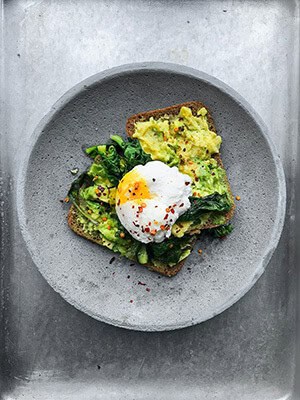
There is a great little infographic going around Facebook that if you Google it, about a strawberry, an organic strawberry versus a regular strawberry, and you hold them up side by side and they look the same. But on one it has got a better part of 30 different pesticides, fungicides, algaecides that are truly deleterious to the human body. Truly any benefit that the strawberry is going to offer you has been smothered and delineated by what the body has to go through to manage that. So, having said that, actually a wonderful resource for that is EWG.org, that’s Environmental Working Group.org. You can download the “Clean 15 and the Dirty Dozen”. It is an amazing resource to see where these chemical saboteurs are, not just in the food but also products for the body and for the home.
We’ve covered a lot of stuff already, and I want to circle back on some of it. You mentioned the Dirty Dozen. That is about pesticides, correct? That if you have a conventional strawberry versus a conventional blueberry versus a conventional peach. You’re going to have different levels of exposure to toxic substances, pesticides. fungicides, et cetera, correct?
There’s always the hot topic of genetically modified foods. Quite honestly, we avoid GMOs entirely, sometimes — sorry to go off on a tangent there, but they are so important. The corn specifically doesn’t just have pesticide on it, BT corn has pesticide in it. The pesticide has actually gotten into the corn itself. It is not something you can scrub or wash off. The Dirty Dozen is kind of a guide here. If you’re going to buy conventional, at least scrub or wash it. But opt to go organic for the Dirty Dozen. Those you want to switch out.
Right, so Dirty Dozen are the ones to avoid conventional as much as possible. And the Clean 15, what does that list?
Those are the ones that, even though they may have been conventionally grown, they test much lower in some of these toxins we’ve been talking about. Or, it stays mostly on the outer part of the fruit or the vegetable. It doesn’t penetrate the vegetable. Washing and peeling helps dramatically.
And those are things like avocados, cantaloupe, sweet potatoes, onions, — whereas Dirty Dozen are things you really want to make sure you are getting organic. Strawberries are actually #1. The #1 item. Celery, apples, cucumber, grapes, potatoes especially.
If you can afford all organic, certainly do that.
So it just gives you a better point of view if you are putting a meal together. Again, based on pursestrings, get what you need. If you can afford all organic, certainly do that, you can better avoid those if you just take a Sunday and go to the organic market. We’re very blessed here in California, and even southern Florida; on Sundays there are truly organic farmer’s markets you can go to. Or even farmer’s market that have been registered to serve organic, and they don’t even have waxes on them because they come directly from the farm to the table. You can always get a better deal if you go an hour before it closes. They don’t want to take anything back, so you get a better deal on some of the food.
Right, so you mentioned strawberries. But, I just read that even organic strawberries are not truly pesticide-free and fumigant free. The soil is treated with toxic fumigants because strawberries are particularly susceptible to pests and different molds. They treat the soil, even the organic strawberries, which about 90% of organic strawberries are grown here in California, there is not a single place that this article writer had found in California where the soil was not treated with these toxic fumigants before planting. You can’t get away from it. Even when you go completely organic.
I think that also has to do with what they use. Because there is something that is considered a pesticide at the base of it is clove oil. Compared to something that has 120 letters that you can’t pronounce that came from a test tube. I would much rather dig a little deeper and find what those components are. You also don’t have to purchase those from conventional stores. If there are things you are going to have every day, that is where you really have to choose the lesser of two evils. Just understand that the evil is different at different levels based on where they come from – Driscoll’s berries versus the berries you get from the farmer’s market that are literally biodynamic. That sort of thing. The commercial process, of course, they are doing what they are doing to feed the planet and make some money to support their family. But I know that the organic farmers and specifically the biodynamic farmers have much cleaner products when you put them head to head.
There are always levels of quality and improvement you can go down. We like to be realistic too. We want people to eat the cleanest possible food and live a clean, healthy lifestyle – keeping in mind that we both live in Los Angeles and the air quality out here is other than wonderful. We live in a toxic world; another element of that is knowing steps for detoxification whether you’re getting colon-hydrotherapy done, or you’re doing certain cleanses or more juices or salads for fiber, or you’re taking certain chelators on a regular basis, activated charcoal, for instance, is pretty common. And very cheap as well. Just understanding that we live in a pretty darn toxic world these days, and there is going to be that exposure no matter what you do, whether you’re just stepping outside, in a lot of cases.
We want people to eat the cleanest possible food and live a clean, healthy lifestyle.
In some cases just adding a chlorella powder, which is a green broken cell chlorella wall powder, again Whole Foods online. And add that. And you’ve got – you’re giving your body more ammunition in your arsenal for being cleaned out. It doesn’t matter if you’re wearing dry clean clothes, and there are other things you can do to mitigate the risk in your home. As a certified green consultant, sometimes I’ve been able to mitigate people’s migraines just by getting rid of their plug-in air fresheners and getting rid of the Febreeze they sprayed all over their home. That was causing the actual trigger for the migraine. And then when you add something to detox the body, a smoothie or a drink or some kind of supplement, that helps the body along, the body doesn’t become so overwhelmed and manifest this into symptoms such as sleeplessness or rashes or irritability or whatever it is.
So circling back here for a moment to the idea of eating mostly organic, but if you have to do conventional fruits and vegetables, stick with the Clean 15 and avoid the Dirty Dozen. You mentioned peeling and washing and so forth. My understanding is that in many fruits and vegetables, the most nutrients are contained in the peel. So, if you peel it, you just threw out most of the nutrition. That’s not ideal
So how do you get around that, is that the question?
Which sort of fruits and vegetables do you want the peel – most people would say ‘Peel a carrot,’ but really if you can just get an organic carrot and scrub it and eat the peel that would be better, correct?
And again if it is freeze-dried, processed in a vacuum, organic-based superfood powders are your best friend, your new bff. You can get them mostly fruit-based and have lots of antioxidants and the additions have some probiotics. That is the addition. It like bumps up what you would have had to peel off; same thing with the green powders. Green powders we love: Pure Synergy, MacroLife Greens, Miracle Reds. Those are phenomenal and we use them a lot in our different — doesn’t matter if it is an ice cream or a salad dressing or a chocolate cake. We’ll put Pure Synergy in and get those greens in there. It doesn’t matter that we made it gluten-free and sugar-free. But yet again you are getting another layer, if your food, your drinks, your salad dressings, your actual food, with spreads and dips and all these things really cleanly without even having a Vitamix. We are talking mushing up an avocado in a bowl with a spoon, adding some spices that you love, maybe a couple of jing herbs we’ll talk about in a few minutes here, and then adding a little green powder. Now you have bumped and bolstered that guacamole up to superhero status, cape blowing in the wind.
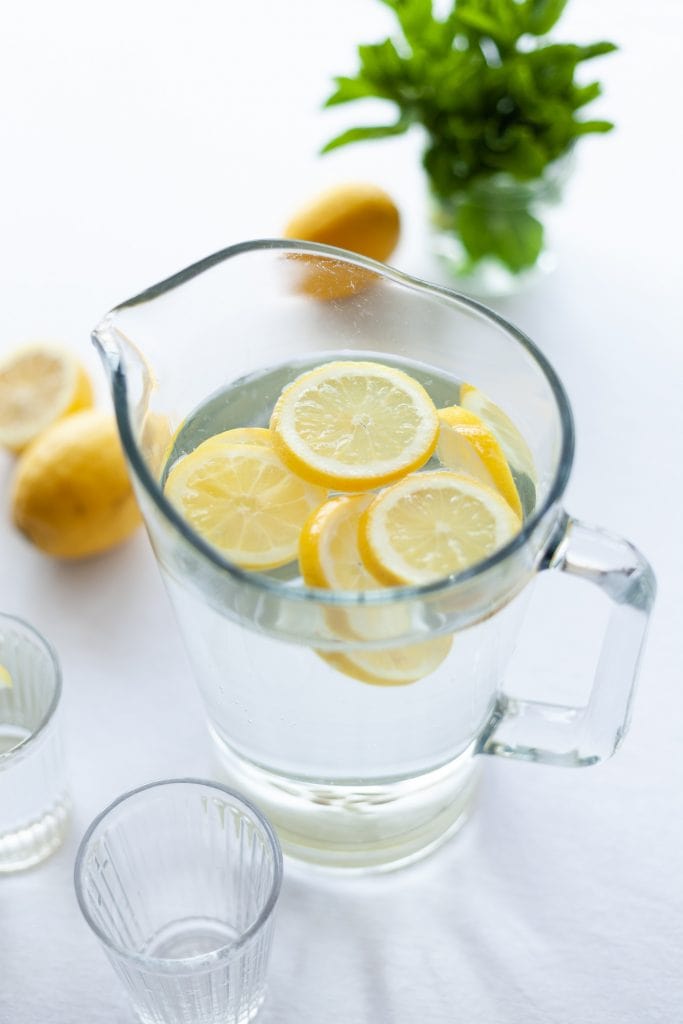
Then, with the peels, it depends on the food itself. Avocados or pineapple or mangoes, something like that where you are not going to be consuming the peels anyway, peeling is one option. We always like to utilize the peel whenever possible. When juicing, we always add the whole lemon so you’re getting some of those essential oils.
Oh, lemon oil.
Better in the peel.
When you are going to use zest. For example, we make a marmalade that we call “marmalade” that has no processed sugar. Orange marmalade is one of my favorites, being a Florida girl, and so I had to be able to re-engineer this so it didn’t have sugar, it didn’t have processed sugar in it at least. And other things that are other than wonderful. Knowing that, I use organic oranges and I zest the peel after I’ve washed it. There are a couple of sprays that you can use, something simple like apple cider vinegar or vinegar and water. It helps take off anything that may have been sprayed on the fruit. Hydrogen peroxide as well works. A little quick food-grade hydrogen peroxide. 3%?
Yeah. 3%.
There’s a food-grade hydrogen peroxide you can keep under your kitchen sink, and just keep it in a spray bottle to rinse things off. It is about layers here and there. Little things really start to add up and it can make a difference. It can be overwhelming. When you are talking about everything we do and say, setting the automation and putting in food into pods and packs and plastic pouches. Instead of just picking it up and eating it straight from the plant or a simple sauté or a light steam or whatever you are using. It makes a big difference because people buying those foods in pods, pills, pouches, plastic containers are putting them in a microwave. Don’t get me started on microwaves. It is changing the protein, and the bonds in those vegetables, fruits, and meats, it changes it intrinsically. You are what you eat. That is why we go for cellular attunement. Cellular attunement and deeper. And that is why these superfoods are so important to incorporate every day in a delicious way.
You are what you eat, that is why we go for cellular attunement. Share on XThat’s why if you are going pre-packaged, even if it is organic, it is not in its best form. It has lost a lot of nutritional value. And the packaging could be seeping toxins into your food. Buying something acidic like canned tomatoes. The lining that keeps that can from rusting is BPA. Boy, that’s not good at all.
Again, the closer to the ground you are the better. And for some people this will seem overwhelming, but even with a not high-powered blender, or a little elbow grease like your grandma used to do, a little potato masher and a metal bowl and you can start making sauces and pastas and all sorts of things that allow you to keep those nutrients. Just to give an idea quickly of those important elements we are looking for. We’re not just looking for vitamins and minerals, but also the enzymes that are in live food. That is why your everyday foods should have a portion that are live. You don’t have to be a completely raw foodist, that’s not what I’m saying. But if first thing in the morning you drink juice straight from the juicer, or you’re eating live foods, you’re getting those enzymes that go into our body and modulate our cell signal and the way they are supposed to, and support the enzymes that our body creates to get them where they need to go within the body.
We’re not just looking for vitamins and minerals, but also the enzymes that are in live food.
With live foods also there are several things. Just the water content. If you’re buying a packaged food, it is probably going to be dried out. It is not going to have the natural water content that is in those foods. Certainly, dehydration is a major contributing factor that a lot of ills that people have. Headaches and low energy and things like that. It also depends on what part of the world you are living in, too. Here in Southern California it is very dry. So we need to stay on top of hydration all the time. Going back to the tomato example, yeah. That is definitely one of those areas that you can’t skimp out on. Spend the extra dollar or two. If you want something that is easy that you can grab and use because of time, then you really have to go and spend the extra couple of bucks on the tomato sauce that is in glass for the reasons that we said.
If you’re not making it from scratch.
And if you’re getting bottled water, it really needs to be out of glass bottles. It’s not very good for the environment to be getting bottled water period. Maybe spring water is better, and keep reusing the same glass bottle. What sort of water do you recommend, alkaline water? A certain brand that you buy from your local co-op? Tap water run through some sort of alkalizing filter? What do you recommend for water intake?
Actually our favorite water is the one that comes from Shasta. It comes only in glass bottles, but they are ready to start delivering it in 5-gallon and 3-gallon jugs too.
That’s more of a local water, but I know they have distribution starting in some Whole Foods now.

I would tell people to look for spring water first. You want that spring water, even if it is from locally where you are. Valley Spring is always a good glass bottle to get. If you look at the TDS, there is a website called WaterMaestro.com that lets you look at what’s in all of the different types of bottled waters. Yes, you’re absolutely right with the plastic. Understand with those bottles, even if you buy them in a case, there is a production date, usually stamped into a plastic or on the case in ink. You may have to hunt for it, it is small. But the date that is on there is the day that it was bottled. When you look at that, the expiration versus the date that it was bottled, and you realized especially with plastic bottles, it has been in hot trucks, it has been sitting in a warehouse, it has been six months already in that bottle. And some of these, I won’t mention who, some of these bottlers blow their own plastic bottles, and then to save money they cool the bottle with water in it that you are drinking. So they blow the plastic bottles, then put the “spring artisanal water” or pure water into it and that is how they cool off the bottles because it saves them a step of the process. That is not a good idea. Avoid that by using glass bottles right off the bat.
That’s just evil.
There are a lot of different degrees as to how far you want to go with your water quality. Certainly, I would say that conventional tapwater is the worst-case scenario, because of all of the additives, the chlorine, and fluoride in particular. Chlorine and fluoride are both in the halogen family of elements on the periodic table of elements, in the same family as iodine and so if you are taking in those chemicals in your tapwater, they are actually competing with iodine receptors in your thyroid. They actually inhibit the production of your T3 and T4 hormones in your thyroid. That is a major topic that people have trouble with, thyroid disorders. It is becoming more and more prevalent. Tapwater is definitely low man on the totem pole. Unless you’re dying of thirst, I would stay away from it. We’re not a fan of alkaline systems because dumping high alkalinity anything into your system on a regular basis can actually disrupt your stomach acid.
– digestion.
Dumping high alkaline into your system on a regular basis can actually disrupt your stomach acid.
And your digestion, I’ve actually seen it with people who drink high pH, 9, 10 pH waters. You can really give your stomach a go. We don’t recommend those. A decent choice is reverse osmosis, it is quite clean. It does get rid of chloride or fluoride. Then, you have other systems that are distilled, which is completely empty. If you’re doing tapwater you might choose to do a distillation. Or some companies, Mountain Valley Springs, as Joy mentioned, you can actually buy distilled water in 5-gallon jugs in a glass if you want to use that. Usually, you actually want to remineralize that with some sea salt. They actually have really cool water vortex machines that spin your water into actually something more hydrating. You can really taste a difference with that. But our top favorites are any kind of spring water that have a lower TDS, total dissolved solid. Out of the ones at Whole Foods, I think Voss is our favorite, that is a really excellent water.
That is from Norway as well. The other one comes right here from California from Shasta.
And there are local springs where you can choose to get your own water directly that are off the beaten path and so forth. I know some people who go hunting for their own water.
Yeah! Findaspring.com, our friend Daniel Vitalis, he actually created findaspring.com, and no matter where you are in the world, people put in. We’ve actually done that as well, brought the big 5-gallon glass jugs to a number of different places here in California. It had remarkable water that comes back down to time and space. You may not have the time to do this. This may not fit the lifestyle of the average person, they may not have that water well. But knowing that it is there as a resource is remarkable. Knowing that you’ve got find-a-spring.com and you’ve got those resources right here in Southern California and Northern California is a really great tool in your jingmaster toolbox.
You’ve mentioned corn being polluted from what it used to be. In fact, there are documentaries just on corn. King Corn, was a great documentary, I loved that. Amazing and disturbing what big industry has done to corn over the last few decades because of the financial incentives with the government subsidizing corn and making it more advantageous for farmers to focus on corn and neglect other crops, and then Monsanto with its strongarm tactics. Corn is a big problem. But let’s talk about soy, because I’m a vegetarian, well, pescatarian and I am sure a lot of the stuff that I am consuming is made with soy and non-organic soy. How bad is it?
Soy is highly estrogenic.
Let me say this about soy. Even when you’re doing organic soy, soy is so estrogenic. I’m going to let Jay take this one after I make my little comment. But, what we are already be bombarded with so many xenoestrogens, men and women equally. From everything we polish and buff our bodies and hair with, and the things that are in our homes, things that are in our foods, that we don’t even realize it is a big deal. Estrogen dominance is a big deal. So, soy, we don’t even realize, is highly estrogenic. If you can avoid doing some of those. I’m not saying soy is bad, it certainly isn’t. It is also one of the top genetically modified foods in the US. Then again, soy would be a concern. But there are different frozen fast foods, you used to have to be more picky about the labeling and what is in it, for example, the Sunshine burgers don’t have that. Another soy-free.
I know they are soy-free and I believe corn-free as well.
They are amazing and delicious and you can turn them into anything from a sloppy joe to just having it as a burger or having it in a wrap or a taco. That’s where batch cooking comes in. It is a Sunday and you treat your body with some love. You and your kids or you and your partner and family, you go out to the market, get a list for the week. Buy your stuff, go back, put some music on that you love, you are in your kitchen, making stuff that you are going to batch cook for the rest of the week. You’re going to put them in great big glass containers, it can be Pyrex from Target, Walmart, doesn’t matter where you get them. We don’t store anything in plastic either. It’s just smart not to because you don’t want that leaching that I spoke of earlier. Throughout the week, you just grab one of those, it doesn’t matter if it is a vegetable or a meat or something you’ve made ahead of time that is now ready to go and then you change it or put it on your plate with a different condiment, a different sauce, a different spice, and you’ve got food for the whole week. When you take the time on Sunday, it makes things easier for you where you aren’t. You could make yourself a gluten-free pizza. You could put that whole thing together, stick it in the freezer, pull it out, stick it in the oven, and you’ve got that working for you. Regarding soy and estrogens, I’m going to let my partner take that.
As Joy mentioned, there are some new great alternatives to veggie burgers on the market that are soy-free. I actually get sunshine burgers sometimes because I like the taste of them. Soy has some other negative properties, like it has been shown to inhibit thyroid function, that is something to watch for. But it also has some good properties as well, as in miso or nato. I was reading an article recently about the protective effects of miso against radiation and radiation poisoning. Actually the longer that it was fermented, the more protective the results were. There is one from Eden that I really like which is a Hatcho miso, it has been fermented for 3 years, and of course, it is organic non-GMO.
Non-GMO. Definitely, you want to get non-GMO because the source is important.
I think you really need to be careful with conventional soy, which again over 90% of it is GMO, but also the non-fermented stuff. There are a lot of studies about children who are grown up on soy formula that have weakened immune systems or allergies or issues. Or hormone imbalances growing up as they get older.
Know that our bodies can heal far and way better than we’ve ever been led to believe.
All of these things, it does not matter what challenge you have; it does not matter what your age is. Know that our bodies can heal far and way better than we’ve ever been led to believe. You can change your stars this red hot minute if you choose to want to know how to do that. I’m really appreciative that you do this podcast, and really honored that you have us here, and we’ve got literally hundreds and hundreds of hours that we share with people. Our book coming out this fall just before the holidays, and there is another book on deck behind that. I want people to not be overwhelmed when we talk about all of the things that have infiltrated what is considered to be our food source. And, when you start to mitigate those things, all of those problems that you are having, whether it be sleep or libido, diminish. If it is a little bit at a time, but if you really take the bull by the tail here you can really handle it. That is what we really try to show. And we do it in delicious ways.
And it is not just removing the toxicity in the environmental factors that we are surrounded by but to also replace it with something more helpful and still enjoyable and emotionally satisfying to our psyche. It doesn’t feel like we are giving anything up, we are just making some intelligent swaps.
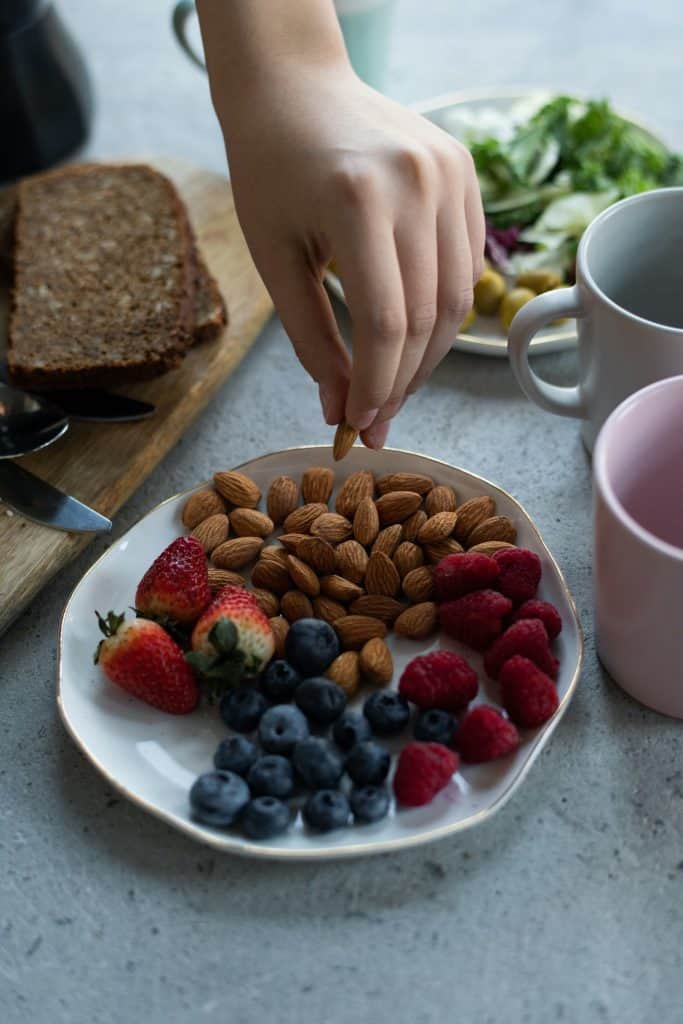
Yeah! We do eat to live, but some of us are striving instead of thriving. We point to the things that allow you to have those comfort foods but still thrive. Elevate instead of degenerate. So, culinarily, we eat with our eyes, it is the smell we eat, because it is pleasurable. It is something our grandma made or our mom always made. Tradition was probably it was made with something that is now not wonderful for the body, it doesn’t matter if it were an oil or an additive or something that has become not what it was when our parents made it. It is knowing how to swap those out, the flavor, the taste, the mouthfeel. That little jing factor that is perceived as you go into your meal. That can be perceived by your heart, mind, and spirit. That is why we love the holidays, even though they can be stressful. There is a certain amount of not just being satisfied but it is sitting around a table with a group of friends you love or a family you are born into you love with eating the foods that brings back the memories of the conversation. You are there, you are present. That is important. And gathering around the table is a campaign I really want to bring to life. It has become extinct in the United States. Gathering around the table undisturbed. And even though people are very high tech and low touch, I want that touch to come back.
That also gets into the emotional aspects of food too. When you are able to take even a little bit of time to eat a meal and you are doing it with people who love and have conversation, it is very defragging, very relaxing. Sometimes we get caught up in the hamster wheel of life, and not taking time for food when you are just go go go. It translates to all aspects of health, a cortisol reaction that puts the adrenals pumping out cortisol all the time. Taking time to be able to take a few minutes out of the day, especially since your digestive system is the parasympathetic state, the opposite state of being in the adrenal state, so if you are stressed, and you’re thinking about a million things in your head or you are trying to do work stuff in your head, that actually is taking energy and digestion away from your body.
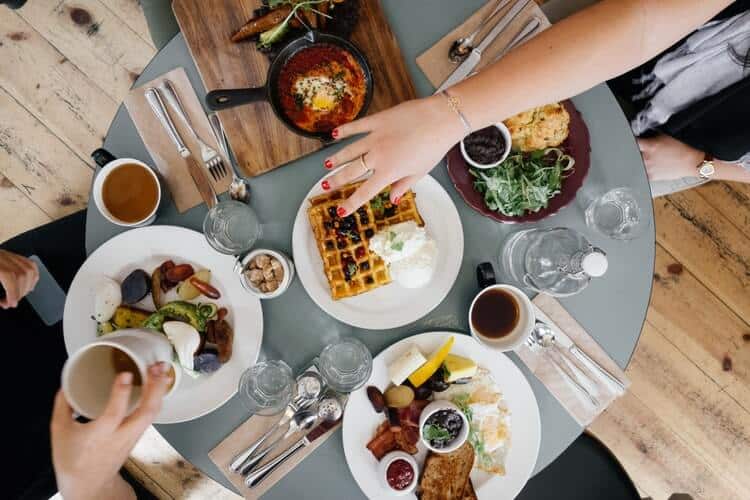
That was amazing and true. And when you’re sitting on a computer and you’ve got a sandwich that you are munching on and wrapped in a paper towel next to the mouse pad and two phones going, you’re taking away the mindfulness of your eating. Treating your body like someone you love is tertiary. It is not even second place, it is tertiary. So, turning off your cell phone, setting it aside. When we go out to dinner with friends, our phones are either silent or off and facedown so they don’t light up on the table. And if you look around the restaurant, you’ll see people texting and making phone calls. Unless you’re a surgeon or your wife is getting ready to have a baby, I’m pretty sure you can have your phone off for the half-hour or hour for people you came here to distress with. I want that to be something encouraged in people.
So there is the slow food movement, listeners should check that out, stop trying to hurry and just get our nutrients in because it is taking away from the value of what you are taking in. We are running long here. I think what we will do, if you are amenable, we will do a part 2, because there is a ton of stuff we didn’t even cover. On sleep, libido, epigenetics, colon hydrotherapy, so much cool stuff. Let’s save that for part two. Let’s wrap up some of the food stuff with a bit of a lightning round. One-sentence answers on a few food-related topics I wanted to get to. Dairy – in or out?
In if it is grassfed and organic.
Any downside to removing dairy from your diet?
Beneficial fats. It is really dependent upon the person and your genetic background and your digestion and the state of the dairy. Most people can handle raw dairy, but it depends.
And grassfed ghee unmodulates virtually every hormone in the body.
Most everybody is good with ghee.
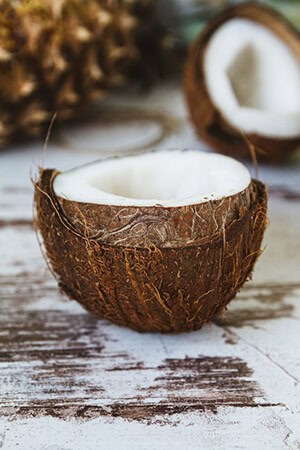
Got it. Ghee is a secret weapon we want in our diets. So soymilk is out. What about rice milk vs. almond milk vs. hemp milk vs. coconut milk?
I love the idea of coconut, they actually used to use coconut for IVs in some of our previous military issues when they were out in the field and had nothing to IV with, coconut water is that clear and clean. Coconut is amenable to most people, there are not a lot of people who are allergic to coconut, there are a ton of good fats, the protophyll is amazing. And you can make coconut literally into almost anything from breads to crème brulees.
Yeah, even coconut flour. If you are into fish and want to bread the fish. One of my favorite fish dishes that, my love and fiancée makes for me is coconut flour breaded fish fillets. Next lightning round question. How do you make water wetter?
Oh, easy.
There’s a couple of ways. One is to spin it in a vortex, there is actually a machine that does that called the Vitalizer. It is a $500 piece of equipment, but it is super cool. You can taste the difference. Number 2 is called Crystal Energy developed by Dr. Patrick Flannigan. It is these little drops that you put into the water and again, side by side.
It is better hydrating, better for you to add these drops.
Yeah, a little bit of sea salt too.
And what kind of salt do you recommend? I’m assuming not the regular Morton’s iodized salt brand.
We are talking Celtic sea salt that still has some of the life and bonnet in it. We love that. Himalayan sea salt would probably be #2. We love it when you do sea salts and put different things in them, like truffle or saffron and season your salt with different flavors, it gives you a whole culinary change in one pinch.
That is a million-dollar culinary tip right there.
I hadn’t even heard of that before!
Well, we will hook you up, my love.
You guys are awesome. So we know that gluten is not something we want to have in our diet. What would we point our listeners to for compelling evidence that you should not have gluten in your diet? Is there a book, a documentary, an article?
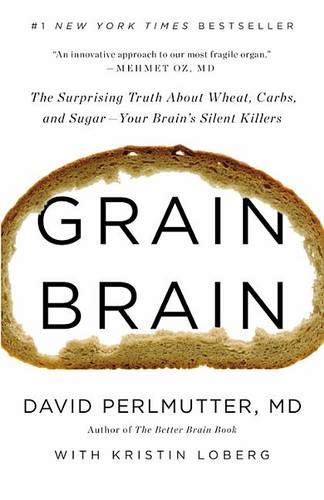
Grain Brain or Wheatbelly. Those are our final answers.
My fiancée just finished Grain Brain and she loved it. And we just recently saw a little video from Wayne Dyer talking about how Wheatbelly has been such an influential book in his life. Both of those books I’ve heard are fantastic. Last question for lightning round. Caloric restriction or intermittent fasting? Do either of those have merit in regards to weight loss and longevity?
Yes. Optimal performance as well. Again the secret between high nutrient-dense foods. You’re eating less of something because you’ve got the nutrients that are not just one little nutrient profile but has an expansive nutrient profile. You’re not having to eat as much as you would with conventional foods. So again, the superfoods. Acai, resveratrol, one tablespoon versus 36 glasses of wine.
And I think intermittent fasting tends to work better for men than for women. And again caloric restriction is one of the proven ways in lab animals that they can consistently get a longer life span. Even in studies in the Blue Zones with humans, their overall caloric intake was much less than our fat American plates. And these are people living into their 100s.
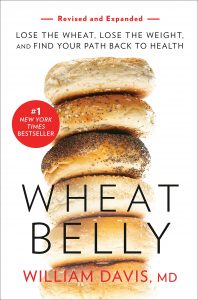
There are secrets to longevity that are untapped by most of us regular civilians in the traditional Western culture and Western diet. We need to get in the know here so we can add, like I said, years to our life and life to your years. And with that, we have a pretty full episode. We will definitely have you back to go over mental focus and clarity and energy-boosting and epigenetics and fertility and sleep and libido, and we didn’t talk about grounding. There is just so much cool stuff that you guys are experts on. Definitely want to have you back. For all you listeners, we want you to keep an eye out for a kickstarter campaign that Joy and Jay are going to be launching here in the next – probably when this episode goes live the Kickstarter will be live. It is for their new book, Food with Benefits. Rather than give a url for somebody to have to write down, we’ll add a URL to the shownotes. But is there a way that people can be added to your list to be notified for these types of things – Kickstarter campaigns, book launches, cool things that you guys are doing?
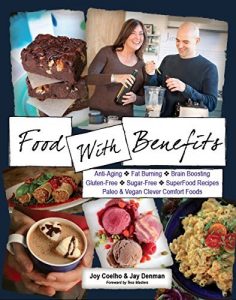
Yes, our website, which is revamped as we speak, at jingslingers.com. And of course, on Kickstarter and the name of the book is Food with Benefits. Google it and you’ll find it. We go way beyond the plate as optimum health strategists. So, when we have our next talks with you, we’ll be able to expand into those topics in our next talks with you as well.
Perfect. This has been super informative, I’m sure our listeners are saturated with awesome knowledge and next actions to take to improve their diets and optimum living. Thanks again, we look forward to having you back on a future episode. So that was Jay and Joy of JingSlingers, definitely check out their Kickstarter campaign, and then their book Food with Benefits when that is out. They’ve got great recipes on their website. You definitely want to follow their website. They are awesome. With that, we will catch you on the next episode. And until then, live life to the fullest.
Important Links
Connect with Jay and Joy
Organizations/Companies
People
Books


